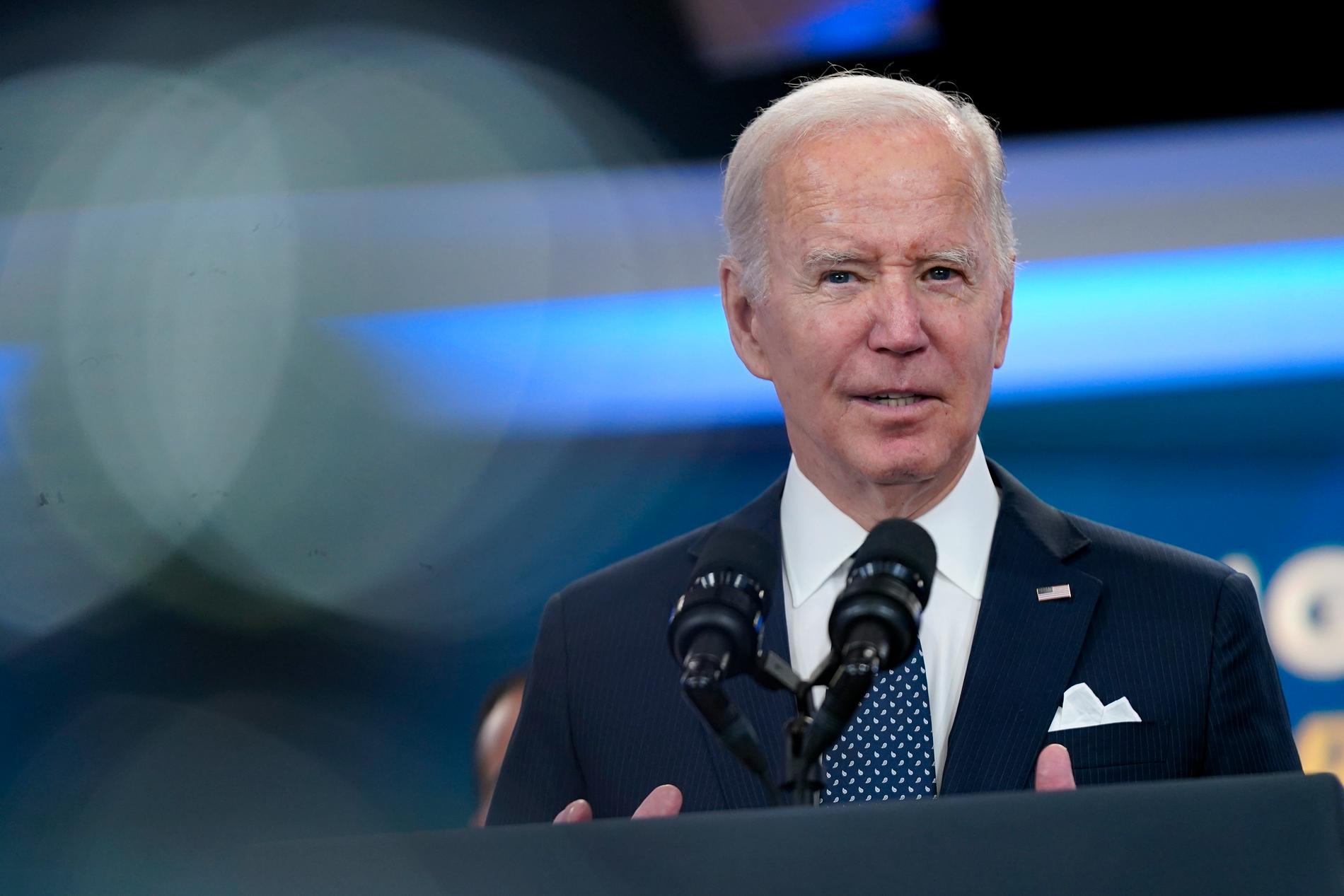WOLFGANG HANSSON
Is the West beginning to reach a limit on support for Ukraine?
Published: Less than 2 hours ago
This is a commenting text. Analysis and positions are the writer's.
COLUMNISTS
On the surface, support for Ukraine appears unwavering.
At the same time, there are more and more signs that there is a limit to how much money and weapons the West is prepared to give Ukraine.
The multi-billion sums are at risk when the EU and the US enter a severe economic crisis.
The United States is the country that has provided by far the most military support to Ukraine. So far this year, Congress has allocated 600 billion kroner.
But now both Democrats and Republicans in Congress are grumbling.
A group of 30 Democrats belonging to the left phalanx of the party has written a letter to President Joe Biden, demanding that negotiations must begin with Russia with a view to achieving a peace agreement on Ukraine. The group includes many well-known members of Congress such as Alexandria Ocasio-Cortez and Jamie Raskin.
They point out that the war has had disastrous consequences far beyond Ukraine's borders. Consequences that are also noticeable in the USA in the form of increased fuel prices, more expensive food and the greatly increased risk of a Russian nuclear attack.
It is the first time since Russia invaded Ukraine on February 24 that a group of Democrats is trying to get Biden to change direction on his Ukraine policy. Although the next day they claimed that the letter was sent by mistake.
Biden's attitude has always been that only Ukraine can decide when it is time to start negotiations with Russia.
Earlier, Kevin McCarthy, who is expected to become the speaker of the Congress if the Republicans get a majority in the House of Representatives in the mid-term elections in less than two weeks, said that it is no longer possible to "write a blank check" for the support to Ukraine. Especially not if the US goes into recession.
The changed American attitude in support of Ukraine is also noticeable in the opinion polls. The percentage of Americans who are very concerned about Ukraine losing the war has fallen from 55 percent in May to 39 percent in September, according to the Pew polling institute.
A group of 30 Democrats have written a letter to US President Joe Biden. They demand negotiations with Russia. Photo: Patrick Semansky/AP
Moments of concern
Among Republicans and independent voters who lean toward the party, the perception that the U.S. provides too much aid to Ukraine has risen 9 percent since March, to 32 percent.
Continued very strong American support for Ukraine is not a foregone conclusion. Especially not if the Republicans were to gain a majority in both houses of Congress after the November 8 election.
Even in Europe, the strong unity is beginning to show cracks.
Hungarian leader Viktor Orban wants the sanctions against Russia to be lifted at the turn of the year to save Europe's economies from a recession. His view is that the sanctions contributed to a global economic war that led to increased inflation and sharply increased energy prices.
The question is how far Orban is prepared to go to push through his demand. All EU sanctions require unanimity among the 27 member states. If Hungary refuses to agree to the extension of the sanctions, they will fall.
Another point of concern is the new government in Italy, which consists of parties far to the right. Prime Minister Giorgia Meloni of the post-fascist Brothers of Italy party promises continued support for Ukraine, but both of her coalition partners are friends with Putin and prefer sanctions against Russia to be lifted.

"The question is what happens if people's private finances are smashed to pieces and they are expected to contribute their tax money to Ukraine at the same time," writes Wolfgang Hansson. Photo: Janerik Henriksson/TT
Difficult balance
The EU decided at its last summit to support Ukraine's budget with SEK 15 billion every month for the next year. In practice, this means that Europe takes over the responsibility for paying salaries to civil servants, healthcare workers and lines of other expenses. The idea is that the US puts up an equal amount. But Europe worries about what happens after the mid-term elections.
It is happening at the same time that Europe is at the beginning of a very severe energy crisis where high electricity bills threaten to ruin both important industrial companies and private individuals.
Vladimir Putin is constantly trying to create cracks in the united front of the West to get the West to end its military and financial support to Ukraine.
So far, support for Ukraine's cause has been strong among the public in Europe. But the question is what happens if people's private finances are shattered and they are expected to contribute their tax money to Ukraine at the same time. Especially as most things indicate that the war will last for a very long time.
Ukraine's needs are constantly increasing as Russia bombs the country's infrastructure.
The US and the EU are walking an increasingly difficult balance between preventing Russia from gaining the upper hand in the war if the West reduces its support and obtaining money for continued support for Ukraine.
The risk is obvious that it will be difficult for Europe's governments to continue spending billions on financial and military support for Ukraine without simultaneously trying to force an end to the war.


Inga kommentarer:
Skicka en kommentar